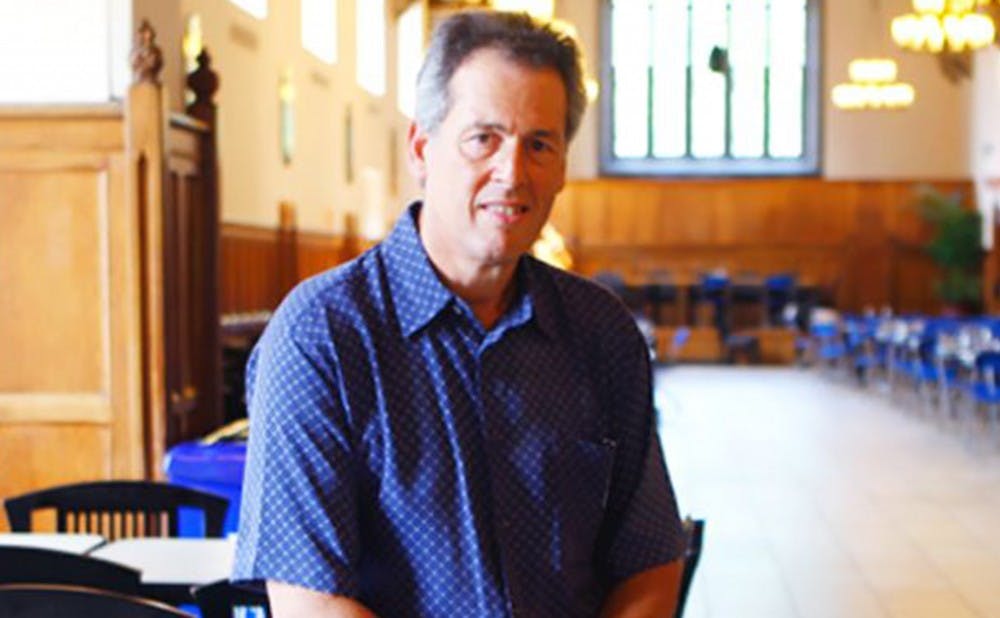Following the March 22 terrorist attacks in Brussels, Larry Moneta, vice president for student affairs, sent an email to students expressing his condolences to those affected by the bombings and support for Muslim students at Duke. After complaints from students that he did not address bombings in Turkey the week before, Moneta sent a second email apologizing for the "oversight" and stating that he abhors the attacks in Turkey and would like to offer an identical message of support to students affected by those bombings. He sent a third email March 27 expressing his condolences to students affected by a bombing in Lahore, Pakistan. The Chronicle’s Jaime Gordon sat down with Moneta to learn more about the decision-making process behind these messages.
The Chronicle: What’s your strategy toward disseminating the University’s response to tragic events and letting students know that their emotions are recognized?
Larry Moneta: You’re looking for science and this is more art. There are occasions when something rises to the level where there may be a statement from the University that goes out to all students, faculty and staff. There are also occasions where something doesn’t rise to a broader University message, and I might choose to send something just to the students. Often, [it is based on] the nature of the incident and whether I think students are going to be impacted. It gets harder, and the fact that I sent two out in a row probably reveals that it is harder.
When I wrote to students after Katrina, that affected everybody living in and around New Orleans. It was more geographically based. Weather doesn’t choose people based on race or identity. Bombings tend to have targeted audiences. Now, as more of the tragedies are politically based, it’s hard. I may not even know about some. I’ll get an email asking me why I didn’t write about a particular one and the answer may be I didn’t know. If the media bias is such that I am only made aware of what the media chooses to report on, it could be that I didn’t even know about a bombing. It’s trying to pick out occurrences that cross some, ill-defined threshold for impacting our community and being sensitive not only to students who are directly impacted, but also to students at large who would want to empathize and sympathize with victims. Now, it’s harder than ever. I could send an email every day.
TC: You mentioned media biases affecting your decisions. Are you taking steps to remedy this?
LM: 'Remedy' presumes that one could fix it. 'Mitigation' is probably a better word, because I’m just doing my best. I’m just reading more and more and trying to expand my social media. I think students are more direct. Students are not shy about emailing me, and I respond to my own emails. When people point out things I missed, I take that seriously. I will acknowledge that students have pointed these things out to me. All we can do is our best. I promise never to be perfect. It is just about trying to be more attentive and have more doors and windows open.
TC: What is the procedure for determining whether students have been harmed in these incidences?
LM: There are several things happening. You don’t get to see all of it. All undergraduates who travel on any Duke program have to register. So, the moment some incident happens, the [Global Education Office] is in touch with all of the GEO directors. The staff who oversee the registry are immediately checking to see if we have any students, faculty or staff registered as being in that area, and then we’re immediately trying to track them down. With the Paris bombings, we ran a list through the registrar’s office of any student, graduate or undergraduate who had a France home address and did personalized emails to every one of them. We also did that with Belgium and Turkey. For many of these incidents, we’re actually customizing communications to students with home addresses in that region. All that is happening, and I’m in the pipeline.
If we know that no one has been affected in time, I might include that in the email [to the student body]. But we might not know, or we might know that someone’s in trouble but it’s no one else’s business. That’s a whole other set of interventions that are going on, in advance of any email that I would send out.
TC: Is there anything you would like to add?
LM: I would rather err by commission than omission. If I do something wrong, I’d rather it was wrong because I attempted to do something, rather than being wrong because I didn’t try to do anything at all.
Get The Chronicle straight to your inbox
Sign up for our weekly newsletter. Cancel at any time.

